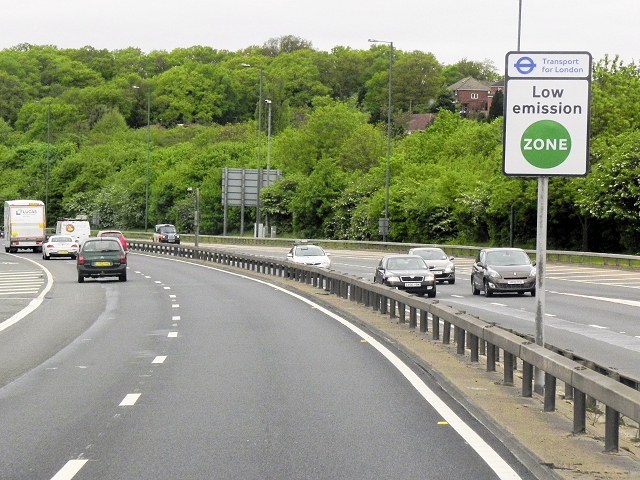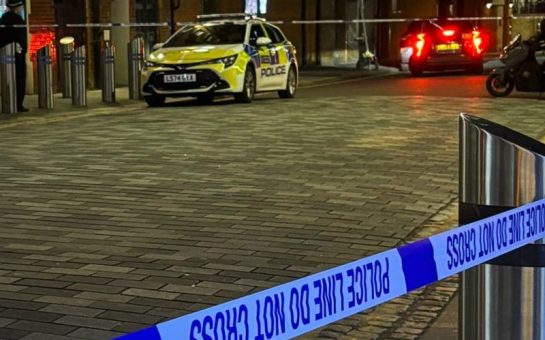People from ethnic minority backgrounds are disproportionately impacted by poor air quality, new data has suggested.
It recently hit the headlines that 24 of the 30 GP surgeries in the capital treating the most people for asthma are in outer London boroughs, the Charity Asthma & Lung uncovered from NHS data on the number of patients being treated for asthma in 2021/22.
Of those 30, seven GP practices were in Southall, Ealing which is also a town where 80% of Southall Broadway residents were recorded as Asian or Asian British in the 2021 census.
Surrounding areas such as Hillingdon and Hounslow which also fall under the Heathrow flight path host a similarly high proportion of ethnic minority residents.
Recent data from City Hall showed that around half of London asthma hospital admissions occurred in children from minority ethnic backgrounds, compared to 28% of white children.
The correlation between poor air quality and ethnic background stems partly from the fact that people falling into these demographics are more likely to live in areas close to busy, polluting roads.
Another City Hall-commissioned report showed that areas in London with the least toxic air have the highest proportion of white residents while black residents were likely to live in areas with more polluted air.
Studies, such as a relatively recent one from the BMJ, support ’emerging evidence that exposure to air pollution might influence the development of asthma’.
Asthma and Lung said: “New analysis showing the highest asthma rates in the outer boroughs provides yet further evidence to support planned ULEZ expansion.”
Given the multifaceted nature of the issue, it is worth taking a holistic look at how expansion of the ULEZ will impact those from ethnic minority backgrounds.
Disputed impact
The proposed impact of ULEZ expansion on air quality is a disputed one.
The London.gov website highlights a recent report suggesting harmful pollution levels are 21% lower than they would be without the current ULEZ.
However, a Jacobs report projects a minor to negligible beneficial impact on exposure to air pollution and achieving WHO Interim Targets across Greater London given ULEZ expansion.
The report also found an overall disproportionate negative impact on ethnic minority people due to drivers of non-compliant vehicles being less likely to be able to afford an upgrade.
Last year’s annual London Poverty Profile revealed 27% of households in the capital were living in poverty, but for Black, Asian and minority ethnic groups specifically, the proportion of people living in poverty was 39%.
In addition, the Jacobs report states: “There is a short-term, minor disproportionate negative impact expected for Black, Asian and minority ethnic people and men working as PHV drivers due to the higher representation of these protected groups within the sector.”
The government is offering financial support packages of £2,000 to those who may need assistance in upgrading their trade vehicle to a ULEZ compliant one.
But the Jacobs report highlights that this sum of money will often be insufficient to meet the costs of a new vehicle and many potential beneficiaries will not even be aware that they are eligible for the support.
Ethnic minorities are more likely to suffer as a result of poor air quality and so may benefit from measures to improve it.
But on the flip-side, those who fall into this demographic are more likely to be negatively affected by a tax on non-compliant vehicles due to often belonging to a lower income household.
The Jacobs report suggested a minor positive impact for young people as a result of air quality improvements and increased likelihood to rely on public transport as opposed to non-compliant vehicles.
The Londoners spoke to young asthma sufferers from ethnic minority backgrounds living in London for insight on the intersection of these identities.
Bijal Limbachia, 22

Bijal was diagnosed with asthma in 2021 as a consequence of Covid-19, following a persistent cough.
She said: “I had an X-ray to see if my chest was infected but it all seemed OK.
“I was given an inhaler afterwards and my cough went away. I haven’t used it since.”
Despite growing up in west London close to Heathrow Airport, Bijal said she did not blame pollution for her asthma, but Covid.
She added: “I do support the ULEZ expansion.
“I think more should be done to help people change their vehicles to be compliant with new laws but the idea of it makes sense.”
Ravin Jayaskara, 24

Ravin, who lives in Brentford in west London, was diagnosed with asthma at three years old.
“I don’t really blame air pollution as I think it’s a decent area air-wise,” he said.
“I don’t support the ULEZ expansion, due to the lack of support for low income families who won’t be able to buy a new car.
“Otherwise it’s a decent-ish idea.”
Not all cases of asthma are linked to poor air quality, just as not all people of ethnic minority backgrounds live in polluted areas.
Yet there remain common issues around such multifaceted topics which affect some groups more than others.
Certain demographics may be disproportionately impacted by poor air quality but it remains to be seen whether they will benefit from ULEZ expansion.
Featured image credit: David Dixon licensed for reuse (CC BY-SA 2.0).





